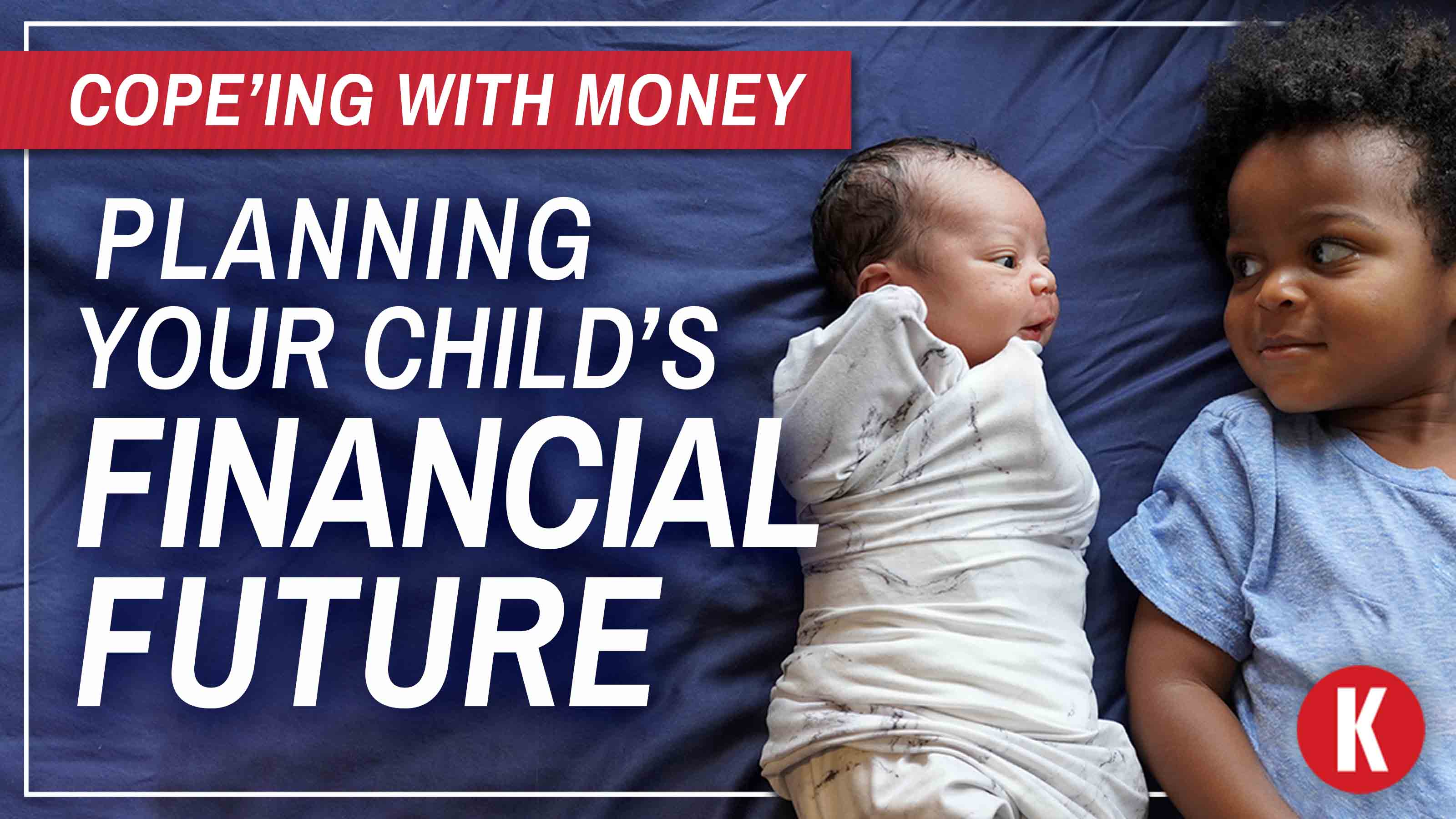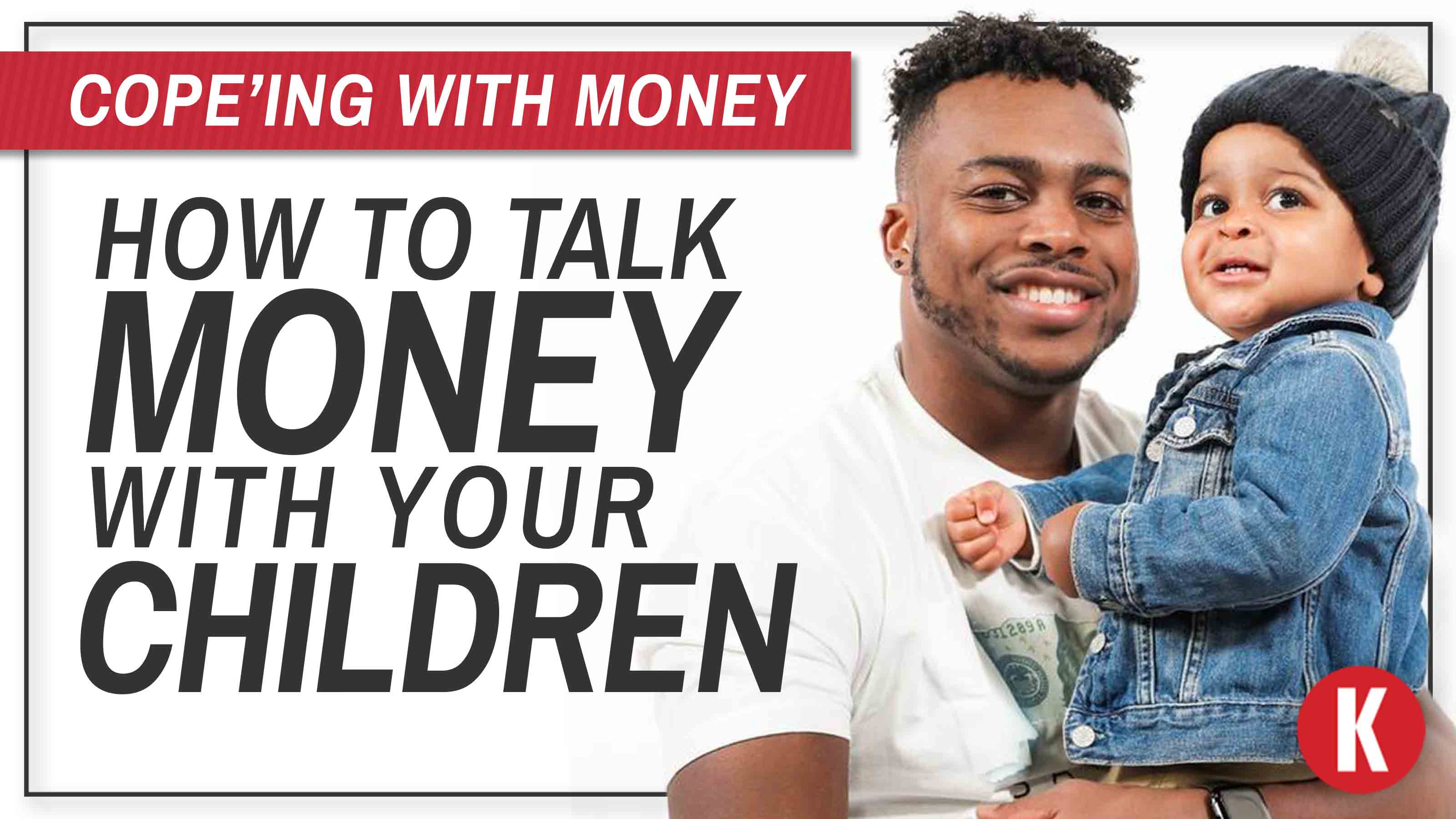Why Financial Education Works
Money skills learned young will pay off in the long run.


Profit and prosper with the best of Kiplinger's advice on investing, taxes, retirement, personal finance and much more. Delivered daily. Enter your email in the box and click Sign Me Up.
You are now subscribed
Your newsletter sign-up was successful
Want to add more newsletters?

Delivered daily
Kiplinger Today
Profit and prosper with the best of Kiplinger's advice on investing, taxes, retirement, personal finance and much more delivered daily. Smart money moves start here.

Sent five days a week
Kiplinger A Step Ahead
Get practical help to make better financial decisions in your everyday life, from spending to savings on top deals.

Delivered daily
Kiplinger Closing Bell
Get today's biggest financial and investing headlines delivered to your inbox every day the U.S. stock market is open.

Sent twice a week
Kiplinger Adviser Intel
Financial pros across the country share best practices and fresh tactics to preserve and grow your wealth.

Delivered weekly
Kiplinger Tax Tips
Trim your federal and state tax bills with practical tax-planning and tax-cutting strategies.

Sent twice a week
Kiplinger Retirement Tips
Your twice-a-week guide to planning and enjoying a financially secure and richly rewarding retirement

Sent bimonthly.
Kiplinger Adviser Angle
Insights for advisers, wealth managers and other financial professionals.

Sent twice a week
Kiplinger Investing Weekly
Your twice-a-week roundup of promising stocks, funds, companies and industries you should consider, ones you should avoid, and why.

Sent weekly for six weeks
Kiplinger Invest for Retirement
Your step-by-step six-part series on how to invest for retirement, from devising a successful strategy to exactly which investments to choose.
Bear with me while I climb on my soapbox for Financial Literacy Month. I’ve been wanting to do it ever since I read a recent “squaring off” feature in The Wall Street Journal that presented two opposing views on the question, “Should College Students Be Required to Take a Personal Finance Course?”
Taking the “no” side was Lauren Willis, a professor at Loyola Law School in Los Angeles. Willis writes that “compared with the salesperson across the table, consumers will never be as knowledgeable about financial products and services.” As a result, “making personal finance courses a college requirement sends a message that financial success is largely the result of personal decisions”; in reality, she says, “government policies have a vastly greater effect than personal financial acumen on Americans’ financial health.”
On the “yes” side was Annamaria Lusardi, director of the Global Financial Literacy Excellence Center at the George Washington University. “Teaching personal finance is not about describing financial products; it’s about teaching the principles of financial decision-making so that people understand how financial instruments work,” Lusardi writes. Although “skepticism is always warranted” about the financial industry and its products, “the purpose of a personal finance course goes beyond those topics.”
From just $107.88 $24.99 for Kiplinger Personal Finance
Become a smarter, better informed investor. Subscribe from just $107.88 $24.99, plus get up to 4 Special Issues

Sign up for Kiplinger’s Free Newsletters
Profit and prosper with the best of expert advice on investing, taxes, retirement, personal finance and more - straight to your e-mail.
Profit and prosper with the best of expert advice - straight to your e-mail.
My two cents. This is where I jump in. From my perch as editor of Kiplinger’s Personal Finance magazine, which has been in the financial education business for 70 years, I can say unequivocally that it works. How do I know? Because our readers tell us so. A longtime subscriber in Hudson, Mass., recently wrote to thank us: “I first subscribed nearly 30 years ago, when I was in grad school. Since then I have read every issue cover to cover. My wife and I may occasionally have worries in life, but they are not financial. I don’t think we could have done it without you.”
At the other end of the age spectrum, we heard from 16-year-old subscriber Aaron Kohlhafer, who suggested that we also publish a financial magazine for readers his age. “A magazine to fit younger adults would be an amazing thing.”
It’s true that individuals are inevitably affected by government policies and outside events over which they may have little control. But never underestimate the power of personal responsibility, which at the very least will help you prepare for a financial crisis, such as a job loss or unexpected expense. You might never be as knowledgeable as the salesperson across the table, but you’ll be far better off if you’re at least aware that he or she is trying to sell you something and that you need to ask questions and get trustworthy advice before you buy.
What kids know. The Wall Street Journal question focused narrowly on college personal finance education, but lessons can take place at any age, in school or at home. During my career writing the “Money Smart Kids” column, I’ve seen elementary-age students running their own in-school businesses; middle schoolers participating in a real-world exercise in which they had to choose a career, budget their income, and shop for a mortgage and a car loan; and teenagers competing in a raucous game of financial football to answer questions about credit and other financial topics.
I’ve interviewed a successful African-American financial adviser who told me that his life was changed, and his future set, when he was inspired by playing a stock simulation game in high school. All of these classroom experiences shared two key ingredients for success: enthusiastic teachers and engaged students.
Firsthand experience. When it comes to money, parents are still their children’s most influential teachers. And having kids manage their own money, whether an allowance or earnings from a job, is one of the best teaching tools there is.
In addition to hands-on experience, this approach has other benefits. In T. Rowe Price’s 2017 Parents, Kids & Money survey, parents who let their kids decide how to save and spend their money on their own were less likely to have children who spend their money as soon as they get it or who expect their parents to buy them what they want. Money Matters on Campus, a survey by EverFi and Higher One, educational technology companies, found that college students who had their own checking accounts and took a financial education course in high school were better money managers in college.
All of which goes to show that small lessons can have a big, and lasting, impact. On a recent visit to Auburn University, I spoke with a student who had drawn up a personal budget as part of a personal finance course. The exercise had prompted her to call her parents and apologize. “For what?” asked her puzzled mother. “I never knew I was so expensive,” she said.
Profit and prosper with the best of Kiplinger's advice on investing, taxes, retirement, personal finance and much more. Delivered daily. Enter your email in the box and click Sign Me Up.

Janet Bodnar is editor-at-large of Kiplinger's Personal Finance, a position she assumed after retiring as editor of the magazine after eight years at the helm. She is a nationally recognized expert on the subjects of women and money, children's and family finances, and financial literacy. She is the author of two books, Money Smart Women and Raising Money Smart Kids. As editor-at-large, she writes two popular columns for Kiplinger, "Money Smart Women" and "Living in Retirement." Bodnar is a graduate of St. Bonaventure University and is a member of its Board of Trustees. She received her master's degree from Columbia University, where she was also a Knight-Bagehot Fellow in Business and Economics Journalism.
-
 Quiz: Do You Know How to Avoid the "Medigap Trap?"
Quiz: Do You Know How to Avoid the "Medigap Trap?"Quiz Test your basic knowledge of the "Medigap Trap" in our quick quiz.
-
 5 Top Tax-Efficient Mutual Funds for Smarter Investing
5 Top Tax-Efficient Mutual Funds for Smarter InvestingMutual funds are many things, but "tax-friendly" usually isn't one of them. These are the exceptions.
-
 AI Sparks Existential Crisis for Software Stocks
AI Sparks Existential Crisis for Software StocksThe Kiplinger Letter Fears that SaaS subscription software could be rendered obsolete by artificial intelligence make investors jittery.
-
 Smart Strategies for Paying Your Child an Allowance
Smart Strategies for Paying Your Child an AllowanceBy giving your kids money to spend and save, you’ll help them sharpen their financial skills at an early age.
-
 My Four Pieces of Advice for Women Anxious About Handling Money
My Four Pieces of Advice for Women Anxious About Handling MoneyTalking about money can help you take control of your finances.
-
 Reading, Writing, and Personal Finance
Reading, Writing, and Personal FinanceRaising Money-Smart Kids A growing number of high schools are adding personal finance to their curriculum.
-
 How to Motivate Kids to Save
How to Motivate Kids to Savepersonal finance It's not easy teaching your child to save. Here are some ways readers have incentivized their kids to keep track of their finances.
-
 Planning Your Child's Financial Future
Planning Your Child's Financial FutureFeature Atlanta Falcons linebacker and Kiplinger contributing editor Brandon Copeland talks about ways to set your child up with a strong financial foundation.
-
 5 Best Financial Gifts for Grandkids
5 Best Financial Gifts for Grandkidsgift ideas If you've been giving your grandchildren cash for the holidays, now is a good time to rethink that. There are other financial gifts that will help teach them the value of money and set them up for life.
-
 How to Talk About Money With Your Children
How to Talk About Money With Your ChildrenBrandon Copeland Atlanta Falcons linebacker and Kiplinger contributing editor Brandon Copeland discusses how to engage with children on spending, investing and other money topics.
-
 Readers Share Tips for Raising Money Smart Kids
Readers Share Tips for Raising Money Smart KidsRaising Money-Smart Kids What's the right age for a child to have their own credit card? Opinions vary.